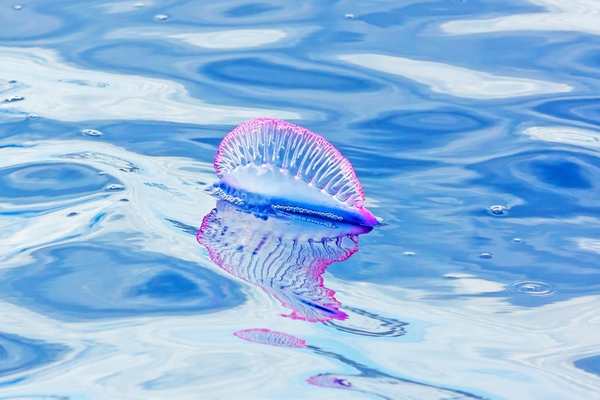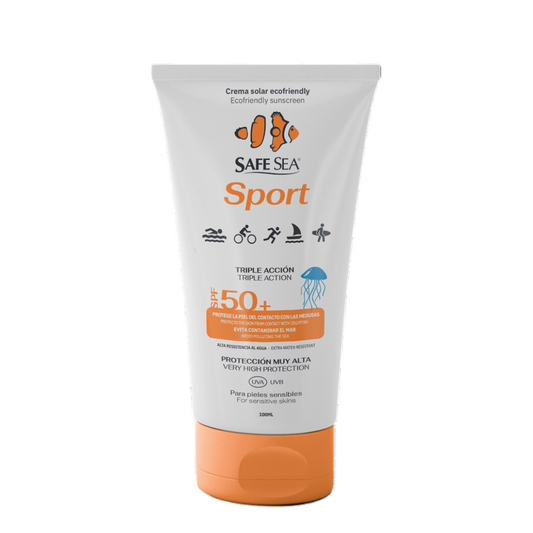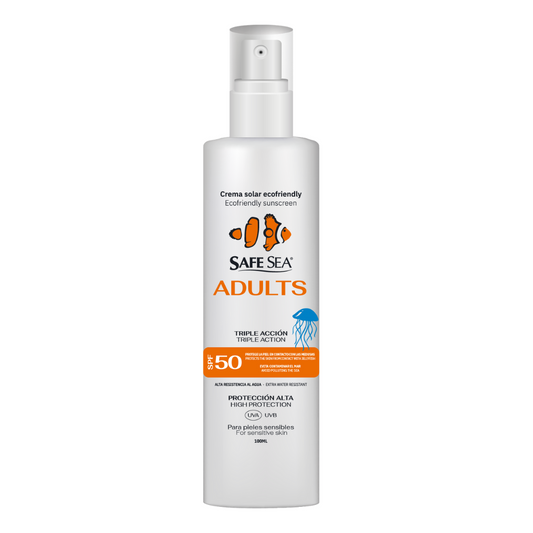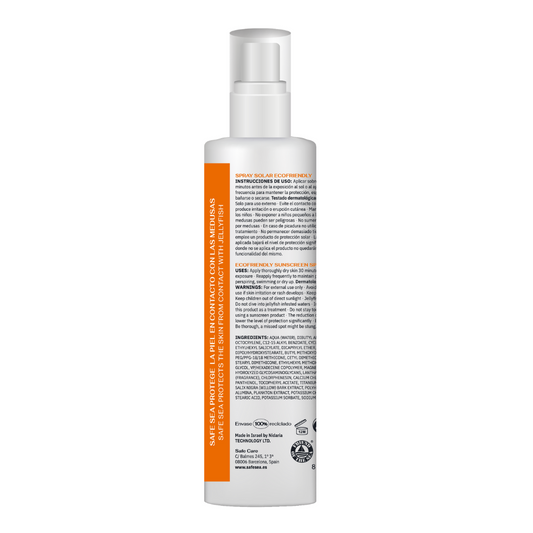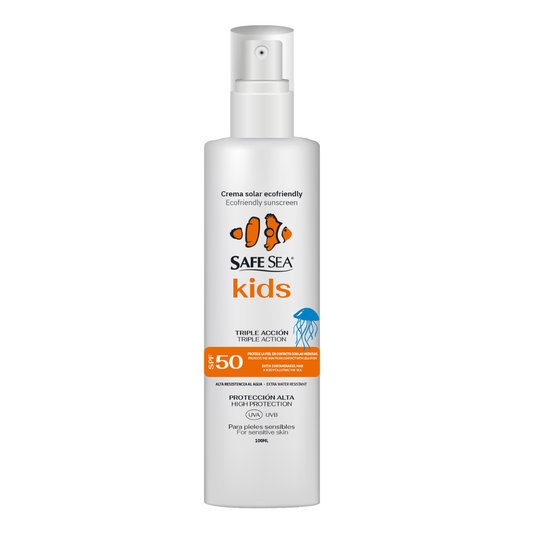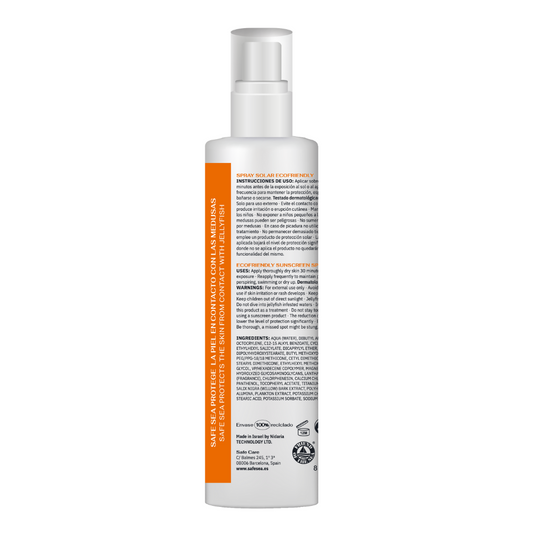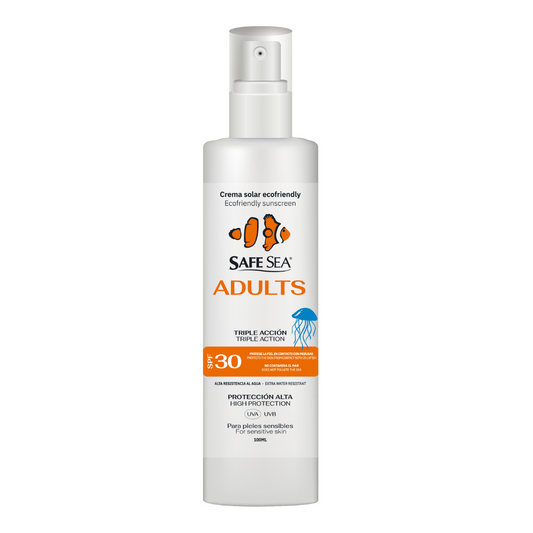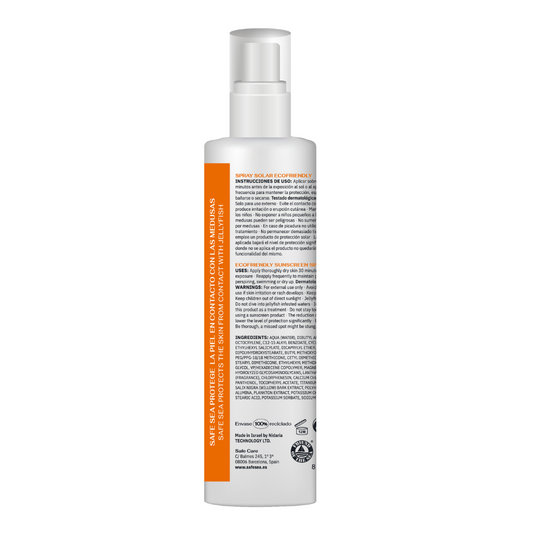How does Safe Sea® inhibit the Portuguese Carabela sting?

How does the Portuguese Carabela sting affect our organism? Cnidarian toxicity is a worldwide problem. Cnidarians are equipped with stinging cells, each of which contains a stinging mechanism capable of delivering toxins to the victim as soon as it is activated. Normally their stinging cells are found in their tentacles.
One of the most universally feared of these is the so-called Portuguese Caravel (in Australia Blue bottle, or Man-O-War, scientific name Physalia physalis those present in the North Atlantic and Physalia utriculus in the Pacific). It is actually a floating colony, with a chamber full of gas, bluish or violet transparent. Its chamber, in its upper part, acts as a sail. Its submerged part is formed by thin and long tentacles (up to 20m have been detected!!!). It is very rare in the Mediterranean, but temperature drift may affect its entry into this sea.
Portuguese Carabela Sting
The venom secreted by Physalia causes respiratory problems and muscle paralysis, and this is the jellyfish's system for capturing prey. The person who suffers the sting will feel severe pain and itching. It can cause serious effects such as fever, shock, respiratory and circulatory problems.
The severe stinging pain may last about two hours and, depending on the treatment, will subside and disappear after about seven to eight hours.
A group of Japanese technicians conducted a test (Challenge Grid Test) to monitor the efficacy of Safe Sea® against the sting of the Portuguese Carabela jellyfish.

Test to evaluate the protection against Portuguese Carabela sting.
The aim was to monitor (grid test) real skin of volunteer individuals exposed with fragments of fresh Carabela tentacles. The inside of the arms was marked and divided into 4 grids for independent experiments on each subject.
Lotion of a well-known solar brand (control) was applied to the left arms at a certain concentration. The same concentration was applied to the right arm with Safe Sea®. It was applied 10-15 minutes before the test. Then fresh samples of tentacles (5 mm) of jellyfish Physalia utriculus were applied.
The test results represented the sum of the squares that developed inflammation after 15 minutes on skin previously covered with Safe Sea® or the control brand. This measured the level of infection of the arms treated with Safe Sea® and the control brand after brief contact with the tentacles.
4 All the left arms were affected after 15'.
In a second stage: arms previously sprayed with Safe Sea® were immersed in a basin with the jellyfish Physalia. Those not affected were monitored.
Effectiveness
All subjects experienced palpable erythema (score 1) on the arm with control solar application. The erythema extended widely along the area of tentacle application. The skin reaction lasted for more than two hours. In contrast, no visible signs of stinging were observed on the Safe Sea® treated squares. Under the same conditions, a prestige sunscreen did not protect the arms exposed to the tentacles of Physalia, which showed palpable erythema.
In contrast, Safe Sea® lotion inhibited the sting in all subjects and grids. This Challenge Grid Test, therefore, confirmed what other scientific studies had previously proven with less dangerous jellyfish. The efficacy in protection against jellyfish sting, even with the sting of Portuguese Carabela, which does not mean that one should not be careful not to cross paths with it.

What to do in case of a Portuguese Carabela sting?
This is different from the protocol for other Mediterranean jellyfish:
- Wash with sea water carefully, never rub!
- Use tweezers, gloves or a plastic card to help remove tentacle debris or debris.
- Apply heat(hot packs) or immersion in hot water (40-45º C).
- Reassess pain and reapply heat if necessary.
- If pain persists, consult a doctor or hospital.
If you are not sure, but suspect that it is a Portuguese Carabela, you should notify the nearest aid station or call 112. If in doubt, do not apply fresh water, vinegar, ammonia, alcohol or pressure bandages.

